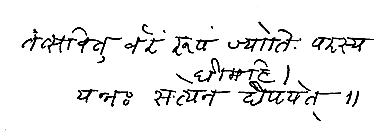Towards
Freedom
-Prof. Kittu Reddy
In this series of articles, we shall study the freedom movement in India culminating in her independence in 1947. We propose to start with the Sepoy Movement of 1857, sometimes known as the first War of Independence. There are different perceptions as to whether the revolt in 1857 was a national movement or merely the revolt of certain disgruntled sections of the people. We shall not enter into a debate on this; for we believe that in either case, the end result was the creation of a national awareness leading to a national consciousness. It was this formation of the national consciousness which ultimately led to the creation of the Indian National Congress and finally to Independence.
In this series, we shall try to look at the psychological aspects of the movement. For as already mentioned at the very beginning of this series on history, we pointed out that the psychology is more important than the events; events are only manifestations or catalysts of the psychology of the people.
Therefore in our study of the Freedom Movement, we shall lay stress on the psychological aspect. In this process, we shall study the psychology of the leaders as well as the psychology of the masses. For all national and political movements have to take into account these two psychological aspects; as in the final analysis, it is the psychology of the mass, which determines the evolution of the society in all fields - political, economic and in fact every field of human activity. It is the genius of the leader – his conviction and capacity that enables him to mould and change the mass thinking. And when the mass has arrived at a certain way of thinking, events start inevitably flowing in a certain direction. Or in certain cases the leaders create events and a movement in order to mould the psychology of the people. In still others, leaders use and take advantage of events to create a psychological change in the mass.
CONTENTS
The
Sepoy Mutiny
The Indian
National Congress
The Partition of Bengal
The Surat Congress
The Early Revolutionaries
Minto-Morley Reforms
The Home Rule Movement
The
Non-Cooperation Movement
Two
Revolutionaries
The
Government of India Act and the Second World War
The Cripps Mission and
the Quit India Movement
A
Divided Freedom
Summary and Conclusion
 |
The Web site and administration does
not take any responsiblities of any kind for the material published
in Books/Articles .And also the Opinions and Views published in Books/Articles
are solely of the writers and contributors.For
any Query you may directly contact them either by e-mail address or
by Mailing address.
Terms and
Condition for Publication of Book/Article



